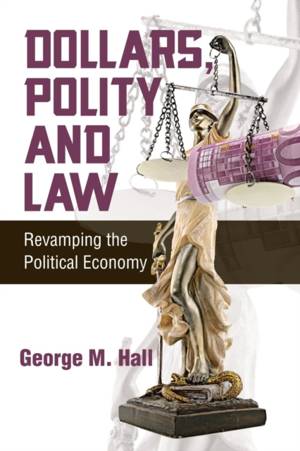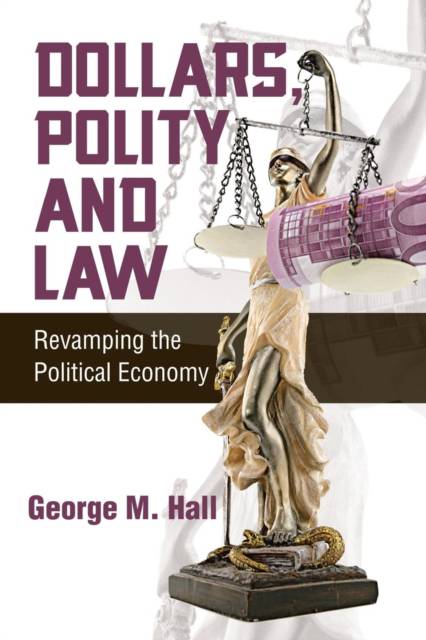
Door een staking bij bpost kan je online bestelling op dit moment iets langer onderweg zijn dan voorzien. Dringend iets nodig? Onze winkels ontvangen jou met open armen!
- Afhalen na 1 uur in een winkel met voorraad
- Gratis thuislevering in België vanaf € 30
- Ruim aanbod met 7 miljoen producten
Door een staking bij bpost kan je online bestelling op dit moment iets langer onderweg zijn dan voorzien. Dringend iets nodig? Onze winkels ontvangen jou met open armen!
- Afhalen na 1 uur in een winkel met voorraad
- Gratis thuislevering in België vanaf € 30
- Ruim aanbod met 7 miljoen producten
Zoeken
€ 28,95
+ 57 punten
Uitvoering
Omschrijving
Revamping the Political Economy after the Impending Collapse No country can borrow indefinitely without fatal consequences. But that is just what the United States is doing; adding nearly a trillion dollars annually to its already massive debt, as overseen by a Congress with an approval rating in the 10-to-14 percent range. In the process, the mind-set that spawned the sub-prime mortgage now renders the entire economy sub-prime. This book explains why and how resolution might obtain after the collapse. The essence is termed polity economics, given that the bifurcated concepts of capitalism and socialism have lost their utility yet persist as incompatible political touchstones. This perspective includes some twenty explicit elements, all addressed at length. Yet by itself, it too will also eventually fail. For it is also essential to restate the Constitution so that it becomes efficaciously aligned with the evolved culture and ethic of the United States, especially to instill stability within the fiscal operations that have come to dominate the country. The ABC's of that admittedly profound document simply do not address the D-through-Z's that have devolved over more than two centuries. Excerpts On fiscal carrying capacity. Isn't the United States simply too big to fail? History laughs. Every empire and nation has been laid waste when it continuously reached for more than it could grasp, which leads to the primary argument in this book: ¬¬Every economy has a substantive need for just so much money and fungible assets: a carrying capacity, so to speak. When that capacity is exceeded, money becomes a commodity in its own right. Given propensities to accumulate money and inflate values over a bread-and-butter baseline, the econ¬omy degenerates in three successive tiers. The first tier harbors the inevitable dis¬tensions of economics, such as periodic business cycles and recessions. Yet money remains a tool, not the essence. But if recessions are avoided, money begins to compete with the substantive aspects of an economy. This is the second tier, where leveraged val¬ues inherently devolve unstable, followed eventually by a depression. Yet even de¬pres¬sion can be staved off by massive bailouts and unsustainable debt. This is the third tier. Money takes pri¬or¬ity over substance, until, that is, the economy collapses. On political versus supposed economic rights. There may be free speech; there is no free lunch.
Specificaties
Betrokkenen
- Auteur(s):
- Uitgeverij:
Inhoud
- Aantal bladzijden:
- 334
- Taal:
- Engels
Eigenschappen
- Productcode (EAN):
- 9781496921147
- Verschijningsdatum:
- 24/07/2014
- Uitvoering:
- Paperback
- Formaat:
- Trade paperback (VS)
- Afmetingen:
- 152 mm x 229 mm
- Gewicht:
- 489 g

Alleen bij Standaard Boekhandel
+ 57 punten op je klantenkaart van Standaard Boekhandel
Beoordelingen
We publiceren alleen reviews die voldoen aan de voorwaarden voor reviews. Bekijk onze voorwaarden voor reviews.











